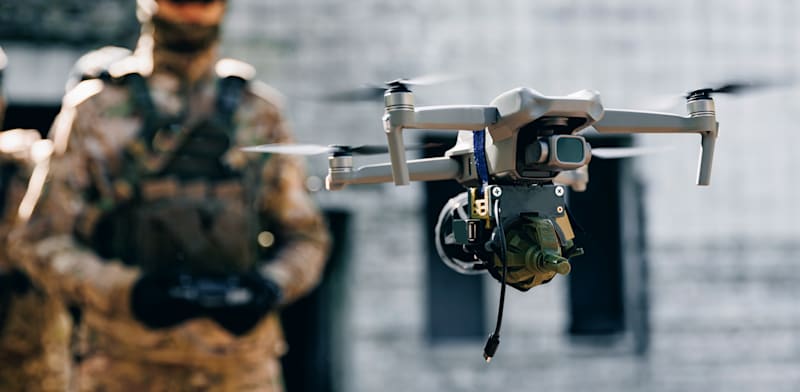Tech stocks experienced turbulence this past week as investors rotated out of this year’s AI highfliers, unwound expectations for a December rate cut, and reassessed the outlook for the US economy after the longest government shutdown in history ended.
But despite the sharp pullback, the steepest in more than a month, Wall Street strategists say the move looks more like profit-taking and shutdown-induced volatility than a real break in the underlying AI or earnings story.
Jeff Krumpelman, chief investment strategist and head of equities at Mariner Wealth Advisors, told Yahoo Finance that long-term AI investors shouldn’t be spooked.
“We’re kind of in a ‘hold your ground’ camp,” he said, explaining his team built sizable positions in AI stocks during the 2022 downturn, when names like Nvidia (NVDA) were down 70% to 80%, but has since trimmed them to avoid letting those positions become too large.
The strategist emphasized that early-stage AI adoption remains a powerful multiyear theme, and that current volatility should not be confused with anything resembling the dot-com boom and bust.
“This is real,” he said. “We’re early innings here on AI and it’s real. This is not 2000.”
Krumpelmann added that the pullback is also revealing opportunities outside the megacap leaders. Software names that have lagged this year’s AI hardware boom now look increasingly attractive.
“You’ve got names like ServiceNow … down 20% this year. They’ve never been as cheap in quite some time,” he said, adding that the firm sees “many opportunities outside of these Mag Seven stocks within cybersecurity” as well.
While AI remains the market’s most powerful long-term driver, the short-term dynamics behind this week’s sell-off are more mechanical than fundamental, according to Alex Morris, CEO and chief investment officer at F/m Investments.
“I think it’s a simple math equation,” he told Yahoo Finance. “You’ve got this really deep concentration in AI names. And all of a sudden, when they start to falter, the average, given how overweight [the index] is, will just naturally fall more than you might expect.”
Morris stressed the drop isn’t entirely about AI momentum fading either, pointing to profit-taking and positioning ahead of next quarter’s results as key drivers, particularly with expectations still sky-high.
“For as much as earnings are strong and they look to stay strong, expectations are high,” he said. “Plus, there’s the sort of knock-on effect of when over a third of the index has a little bit of a sneeze, the rest of the index certainly catches cold.”
























